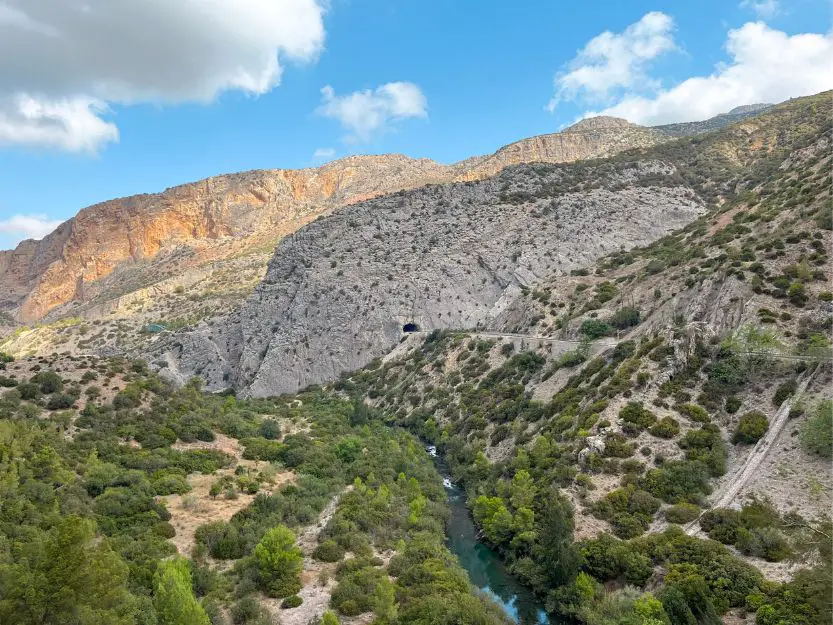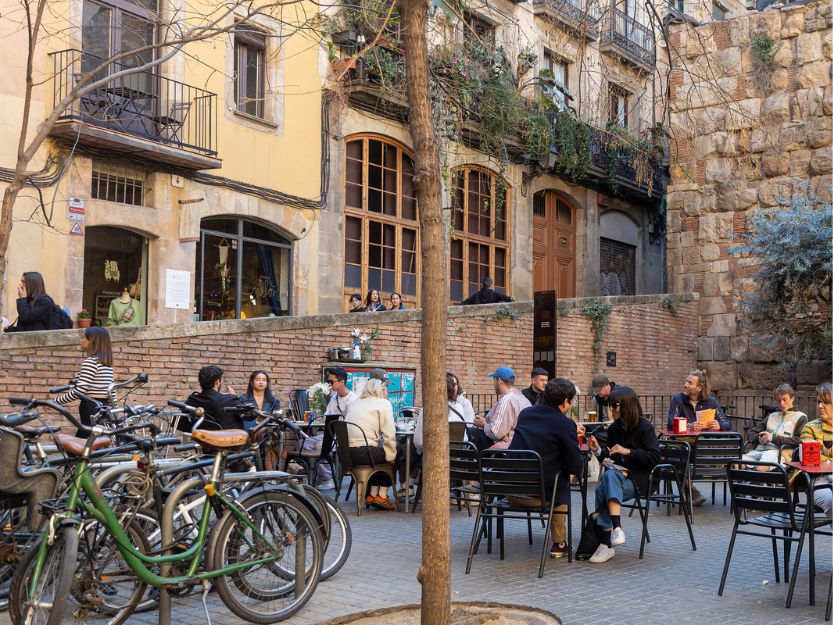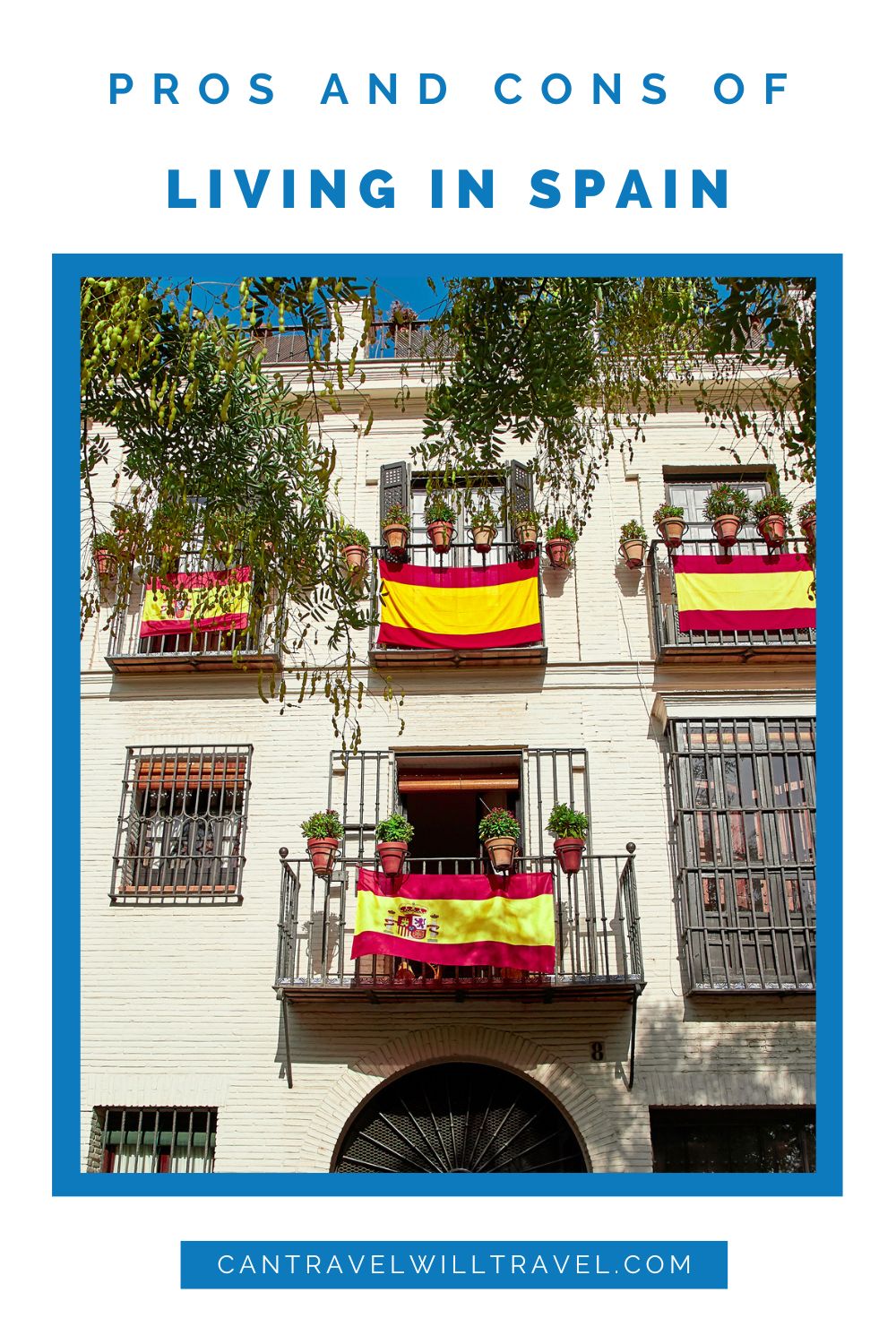Spain is a popular country for expats and digital nomads. The relaxed lifestyle, Mediterranean sunshine, delicious cuisine and large expat and digital nomad communities make it a top choice.
I’ve spent a lot of time in various parts of Spain over the last fifteen years, both travelling and working remotely as a digital nomad, and I’ve also spoken to many residents and expats who call Spain home.
All of this has given me good insight into the pros and cons of living in Spain, which I share below to help you decide whether or not to move to Spain.
Affiliate Link Disclosure: This post contains affiliate links. If you use them to make a purchase, we may earn a small commission at no extra cost to you. As an Amazon Associate, we earn from qualifying purchases. Learn more in our Affiliate Link Disclosure.
Pros of Living in Spain

There are numerous advantages to living in Spain, but these are what I consider to be the main pros of living in Spain.
Plenty of Things to Do
Living in Spain is fantastic for those who love doing different activities. Fortunately, Spain has many free activities for all ages, from visiting important museums and art galleries to relaxing at a park or going on a scenic hike.
If you are a history buff, you have many important buildings and monuments you can enjoy for free on specific weekdays or as a resident, no matter which Spanish city you plan to move to.
If you love nature, you also have many beautiful walks on the coast or mountainside, from hiking some or all of one of the routes of the Camino de Santiago (St James Way), like I have, to Caminito del Rey and lesser-known routes that are still worth doing.

Landscape View From The Caminito del Rey
And let’s not forget the beautiful beaches you can find in Spain, not only in the Canary and Balearic Islands but across the country.
In addition to the activities you can do all year round, every Spanish city and town has traditional events and fairs, which are ideal to immerse yourself in the local culture.
Low Cost of Living
Is Spain an expensive country to live in? No, especially if you come from countries like the US, the UK and Australia.
The cost of living in Spain is low; it’s one of the cheapest countries in Europe. You will spend most of your money on rent or a mortgage, food prices are reasonable, and transport prices are very affordable. Also, you don’t need to spend a lot of money to have a good time. Many leisure activities are free.
Nevertheless, the cost of living varies from city to city. For example, living in Barcelona isn’t the same as in Seville or Cordoba. Southern Spain is cheaper than Central and Northern Spain.
Good and Affordable Public Transport
Unlike the US, Spain has a very good and affordable public transportation system. You don’t necessarily need a car to move around the country.
Madrid and Barcelona are the two main cities with fantastic public transport as both have underground, short and long-distance trains and buses. They also have big airports connecting to the rest of Spain and other countries.
However, the good transportation system goes beyond these cities. You might only want to consider driving in Spain if you live in a small village as you will struggle to access some places and bus timetables are usually reduced and irregular.
Friendly, Welcoming Locals

One of the reasons many people choose Spain as their new home is the welcoming locals.
Making friends with Spaniards isn’t difficult, and even if you don’t know the language, they will be happy to help you and find ways to communicate.
There are many opportunities to meet locals, from joining dancing lessons and working in cafes to attending events.
The most difficult part is starting a conversation; the rest is easy, and you will probably be invited to their house for a meal.
On top of this, many Spanish cities have good expat communities, for example, Malaga and the well-known Costa del Sol, Alicante and Tenerife.
If you have always found it difficult to meet people, you can also join Facebook groups in the city you are moving. You can do so by searching for “[Your nationality] in [city/town]”.
The Laid-Back Lifestyle
Spanish lifestyle is different from other European countries. Spaniards take things slowly, whether it’s having a meal with friends and family or making last-minute plans.
They love spending time with their loved ones and making plans after work, so having fun doesn’t always need to be on weekends like in other countries.
Some love this laid-back lifestyle, but others don’t. It can be seen as an advantage or disadvantage.
This laid-back lifestyle means that not everyone is punctual, things aren’t as organised as in other countries, and you won’t see many shops open on Sundays and during August as many locals take holidays.
Pleasant Weather Almost Year Round
Another advantage of living in Spain is the weather. Nevertheless, this depends on which part of Spain you decide to live in. The country has several climates, and many people don’t know about them.
If you move to northern Spain, you can expect more rainy and cloudy days, whilst southern Spain and the islands enjoy more sunshine and warmer weather.
Also, it isn’t warm everywhere. For example, cities like Zaragoza have an average daily low of 4 degrees Celsius in December.
It’s important to know that there’s a big difference between day and night temperatures in winter. It can be almost 20 degrees during the day and 12 degrees during the night.
Delicious Food

Spanish cuisine is among the top ten cuisines in the world. It was influenced by many civilisations, including the Romans and Moors, and you can still see this influence in the ingredients used, such as saffron, raisins, and olive oil.
Some popular Spanish dishes are paella, croquetas, and tortilla, but Spanish food is very diverse.
You can have anything from tapas and pintxos to traditional dishes and stews specific to small villages, to excellent seafood on the coast. My personal favourite Spanish dishes are pulpo de gallega and pimiento de padrons. Whilst I walked 1,200 km on the Camino de Santiago my go-to breakfast was tortilla de patatas and a cafe con leche.
Also, Spain doesn’t rely much on exported goods, meaning it grows many fruits and vegetables, so you have high-quality and locally sourced ingredients.
Proximity to Other Beautiful European Countries
Travelling to other cities or countries from countries such as the USA, Canada or Australia isn’t easy because everything is far away. However, if you live in Spain, you can easily take a short flight or train to other countries.
Portugal and France are next to Spain, and are fantastic countries to visit, with lots of culture and good food!
Also, you can take a two or three-hour flight to other amazing cities like London, Dublin and Rome.
Cons of Living In Spain
Despite all the pros there are to living in Spain, there are of course, also some cons to living in Spain that you should consider. Here are what I consider to be the main pros of living in Spain.
The Slow Bureaucracy
Bureaucracy in Spain is a nightmare for Spaniards and expats. It is slow, so I highly recommend sorting out any documents quickly. Don’t leave the paperwork you need for the last minute because the chances of not getting it are high.
Paperwork is often written in very formal language with vocabulary that not even some Spaniards understand, so this can be a barrier for future expats, and it’s advisable to get some help.
In addition to this, you can’t always submit your documents online, so you need to hand them in person.
Lack of Job Opportunities

The biggest disadvantage of moving to Spain is the lack of job opportunities. It isn’t easy to get a job, but knowing Spanish and other languages will open doors for you across a wider range of occupations.
If you move to Spain without knowing any Spanish, you might want to look for a remote job. Other popular jobs for expats include teaching English, IT, and marketing for an international company or working as a real estate agent on coastal destinations.
When it comes to salary, it is lower than in other developed countries like the UK, Germany and US. The working day also tends to be longer, partially due to the traditional siesta in the afternoon.
Limited International, Vegetarian and Vegan Food
You won’t see this as a disadvantage if you love Spanish food and aren’t a vegetarian or vegan. Still, although you can find more international restaurants now than a few years ago, Spanish and Mediterranean cuisine are predominant.
Big cities have more international food options, but if you plan to move to a small town, you won’t see many, even less if it isn’t by the coast or a popular tourist spot.
Also, other countries like the UK offer more vegetarian and vegan options. Finding vegetarian and vegan dishes in many bars and restaurants is still difficult in many parts of Spain, specifically small towns.
The Language Barrier

Unless you live in a popular expat destination on the coast like Marbella or Benidorm, you won’t see many things in English or other languages.
So, if you plan to live in Spain long term, ideally, you want to learn the language. Knowing Spanish will help you make more friends, immerse yourself in the culture and feel more adapted.
Another important aspect to consider is the region you choose. Catalonia and the Basque Country have official languages other than Spanish.
If you move there, you’ll struggle even more because you’ll want to know Spanish, Catalan, or Basque. Most locals will speak those languages despite knowing Spanish.
Last but not least, accents can be challenging. Andalusian accent tends to be more difficult for expats than a Madrid accent.
The Slow Healthcare System
Spain has a free healthcare system, and it’s considered good compared to other countries. However, it is saturated, and getting an appointment with a doctor isn’t easy, especially if you need to see a specialised doctor (this can take up to months).
You can pay for private healthcare, but you will probably face the same problem and will have to wait for appointments. Therefore arranging healthcare insurance is a good idea if you plan to move to Spain.
So, there you have it. Spain, with its vibrant lifestyle, diverse experiences, and delicious food, offers a mix of pros and cons. From the laid-back charm and affordable living to bureaucratic hurdles and job market nuances, it’s a country of contrasts.
If you’re considering making Spain your home, have my pros and cons of living in Spain helped you decide?
Or, if you already live or have lived there, have I missed any pros or cons?
Planning Your Move to Spain
Planning your move to Spain? Here are some of our recommended useful resources to help you.
|
● TRAVEL INSURANCE IS AN IMPORTANT CONSIDERATION! World Nomads offers cover for travellers in over 100 countries and True Traveller is a great option if you’re from the UK or EU. SafetyWing is another solution, particularly for digital nomads and long-term travellers. ● Use Wise (formerly Transferwise) for sending or receiving money internationally. It’s cheap, easy and transparent. ● Find amazing flight deals on Skyscanner and Kayak. ● For great prices on ferries check out Ferryhopper. ● Compare charter yacht hire prices on Click&Boat. ● Compare rental car prices on Rentalcars.com. ● You can book train, bus and other ground transportation with Trainline, 12Go and Bookaway. ● Booking.com usually have the best hotel prices. ● Our go-to for self-catering accommodation is Vrbo. ● Discover fantastic trips and activities with Viator and GetYourGuide. ● Check out Bookmundi, G Adventures, and Intrepid Travel for group holidays and tours. |
Read More Spain6 Hidden Gems in Tenerife |

